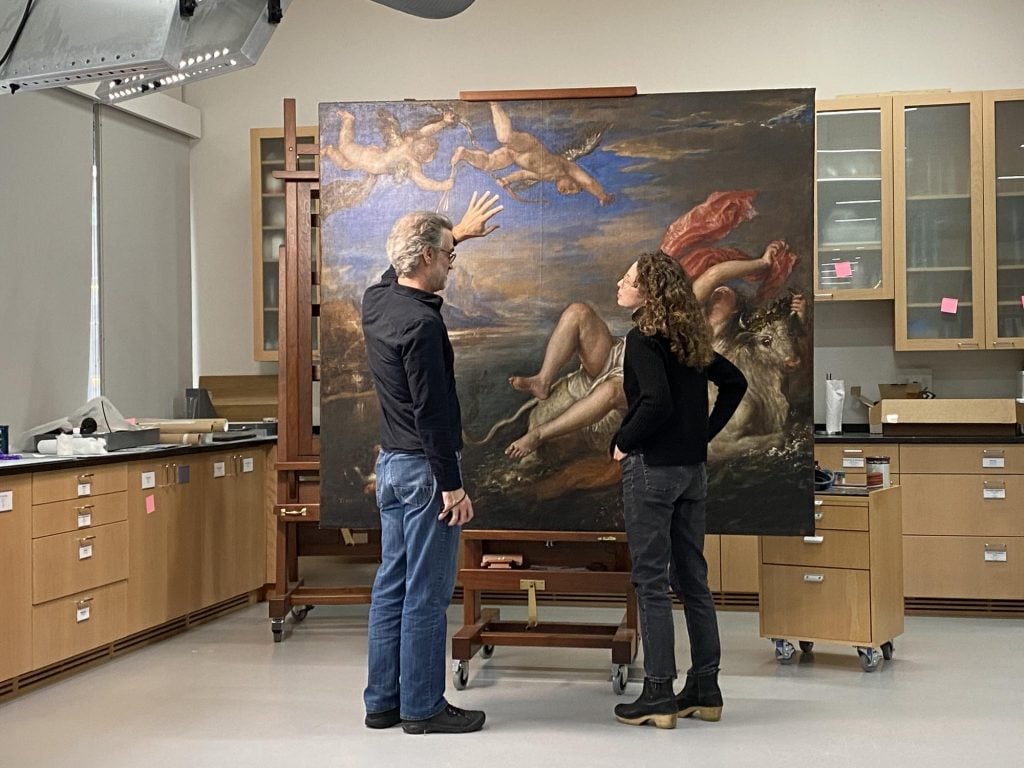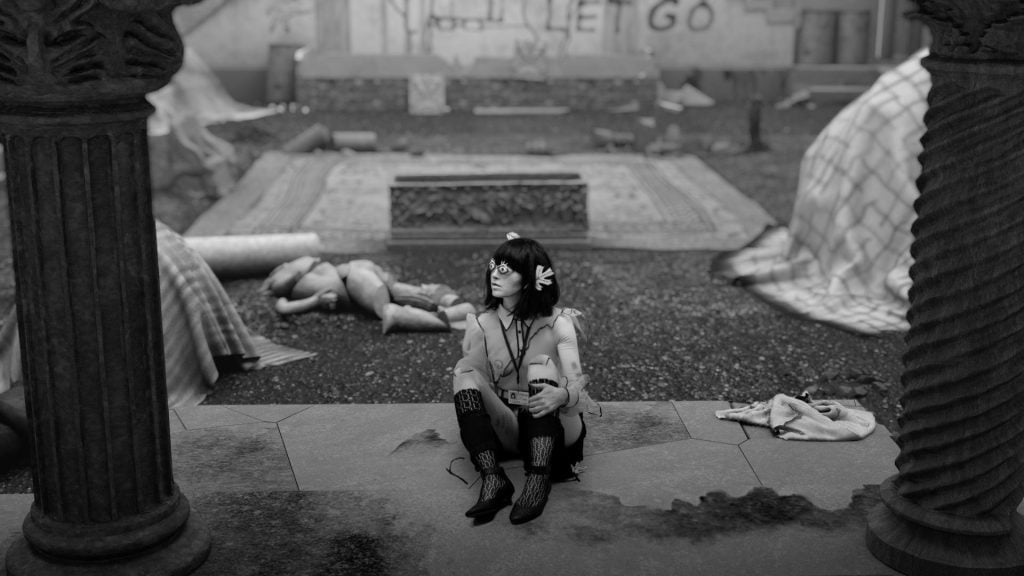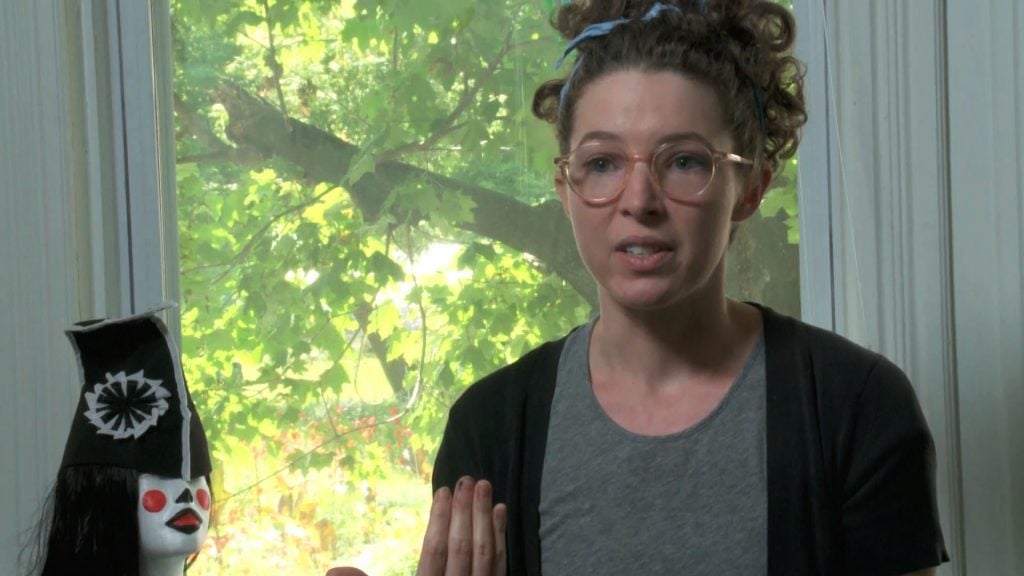Art World
‘I Didn’t Want to Fictionalize’: Watch Mary Reid Kelley Explain How Her Eerie Videos Reanimate Forgotten Women’s History
As part of a collaboration with Art21, hear news-making artists describe their inspirations in their own words.

As part of a collaboration with Art21, hear news-making artists describe their inspirations in their own words.

Caroline Goldstein

Titian’s monumental canvas The Rape of Europa depicts the Roman myth of Europa, abducted by king of the gods, Jupiter, who is masquerading as a bull. As told in Ovid’s Metamorphoses, Europa is at first enamored with the animal, but becomes terrified when she is forcibly wrenched from safety. Their union is one based in terror.
In myth, the children Europa bears after Jupiter’s assault become the founders of Europe. In art, Titian’s tableaux remains one of the most lauded canvases painted by the Renaissance master, and a jewel in the collection of the Isabella Stewart Gardner Museum.
A new show at the Gardner Museum features a contemporary satirical reflection on that same myth through the eyes of artists Mary Reid Kelley and Patrick Kelley. The artists were commissioned to respond to Titian’s painting, which is on view in the current exhibition “Titian: Women, Myth & Power.” The Kelleys’ short film is a combination of performance and painting, suffused with Mary Reid Kelley’s satirical poetry and wordplay. Mary plays a range of characters that Patrick collages together, giving voice to Europa in the context of the #MeToo movement and today’s reckoning with sexual assault and violence against women.

Mary Reid Kelley & Patrick Kelley, still from The Rape of Europa (2021). Courtesy of the artists and the Gardner Museum.
In an exclusive interview with Art21 filmed back in 2012, Mary Reid Kelley discussed her video work You Make Me Iliad (2010), which was born out of her research into women who lived during World War I. Kelley found few firsthand accounts, and took it upon herself to create characters and narratives that filled in the gaps of history.
“I’ve always been very interested in the history of women,” Kelley told Art21, “what women are doing, what the circumstances of their lives are, how law and politics make women’s lives what they are historically.”
The artist describes the lack of information about women’s lives, especially when it came to first-hand accounts of trauma. Men, she said, “would have written a memoir,” while women, who so often were at the mercy of their male counterparts, had no “opportunities to process” their traumas, let alone a course to seek justice.

Production still from the Art21 “Extended Play” film, “Mary Reid Kelley: ‘You Make Me Iliad.'” © Art21, Inc. 2012.
In You Make Me Iliad, as in The Rape of Europa, Kelley is attempting to shine a light on the traumas that she says have been cast into “the deep dark recess of history.”
Faced with the silences of history, Kelley sees a role for artists bringing the power of imagination to bear. “It’s almost the only way that you can reconstitute that experience that is so lost.”
Watch the video, which originally appeared as part of Art21’s Art in the Twenty-First Century series, below. “The Rape of Europa: Mary Reid Kelley and Patrick Kelley” is on view at the Gardner Museum through January 2, 2022.
This is an installment of “Art on Video,” a collaboration between Artnet News and Art21 that brings you clips of newsmaking artists. A new series of the nonprofit Art21’s flagship series Art in the Twenty-First Century is available now on PBS. Catch all episodes of other series like New York Close Up and Extended Play and learn about the organization’s educational programs at Art21.org